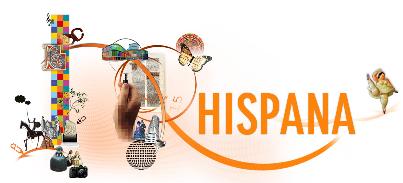Mostrar el registro sencillo del ítem
Extracurricular activities, Positive Parenting and Personal Positive Youth Development. Differential relations amongst age and academic pathways
| dc.contributor.author | Balaguer, Álvaro | |
| dc.contributor.author | Orejudo, Santos | |
| dc.contributor.author | Rodríguez Ledo, César | |
| dc.contributor.author | Cardoso Moreno, María Jesús | |
| dc.date.accessioned | 2020-10-14T11:11:12Z | |
| dc.date.available | 2020-10-14T11:11:12Z | |
| dc.date.issued | 2020 | |
| dc.identifier.issn | 1696-2095 | |
| dc.identifier.uri | http://hdl.handle.net/10835/8640 | |
| dc.description.abstract | Introduction. Positive parenting and Extracurricular Activities are contextual assets for enhancing Personal Positive Youth Development. However, these assets have not been studied simultaneously or in students of different ages. This paper analyzed these associations, by testing a mediator model in students with different academic trajectories. Method. The sample was composed by 1.402 adolescents, aged between 12 and 20 years (Mean=14.40; SD=1.910; males=49%). Students completed various questionnaires regarding the personal constructs of Optimism, Hope, General Self-efficacy and Sense of Coherence, as well as questionnaires that address perceptions of Parental Style and Extracurricular Activities. A random sampling was carried out by schools in Aragon (Spain) that offered the degrees carried out by adolescents. Results. Structural equation modeling showed that Positive Parenting was associated with the accomplishment of Extracurricular Activities and personality constructs. Further, participation in activities was associated with the same pattern of personality traits (Expectancies, Self, and Sense of Coherence). These results were found mainly in younger students (12-15 years old), while in older students (16-20 years old) this effect was found only for those with a profile of less successful academic pathways. Discussion and Conclusion. Relationships with family are the essential asset for adolescents, especially to promote Personal Positive Youth Development, but also for the engagement in Extracurricular Activities. Implications for developmental psychologists, practitioners and educators are discussed, especially underscoring the importance of offering extracurricular opportunities. | es_ES |
| dc.language.iso | es | es_ES |
| dc.publisher | Universidad de Almería | es_ES |
| dc.rights | Attribution-NonCommercial-NoDerivatives 4.0 Internacional | * |
| dc.rights.uri | http://creativecommons.org/licenses/by-nc-nd/4.0/ | * |
| dc.subject | Adolescents | es_ES |
| dc.subject | Extracurricular Activities | es_ES |
| dc.subject | Positive Parenting | es_ES |
| dc.subject | Personal Positive Youth Development | es_ES |
| dc.subject | Structural equation modeling | es_ES |
| dc.subject | Adolescentes | es_ES |
| dc.subject | Actividades Extracurriculares | es_ES |
| dc.subject | Parentalidad Positiva | es_ES |
| dc.subject | Desarrollo Personal Positivo Adolescente | es_ES |
| dc.subject | Modelos de Ecuaciones Estructurales | es_ES |
| dc.title | Extracurricular activities, Positive Parenting and Personal Positive Youth Development. Differential relations amongst age and academic pathways | es_ES |
| dc.title.alternative | Actividades extraescolares, Parentalidad positiva y Desarrollo Positivo Adolescente Personal. Relaciones diferenciales a través de la edad y trayectorias académicas | es_ES |
| dc.type | info:eu-repo/semantics/article | es_ES |
| dc.relation.publisherversion | http://ojs.ual.es/ojs/index.php/EJREP/article/view/2929 | es_ES |
| dc.rights.accessRights | info:eu-repo/semantics/openAccess | es_ES |
| dc.identifier.doi | http://dx.doi.org/10.25115/ejrep.v18i51.2929 |










